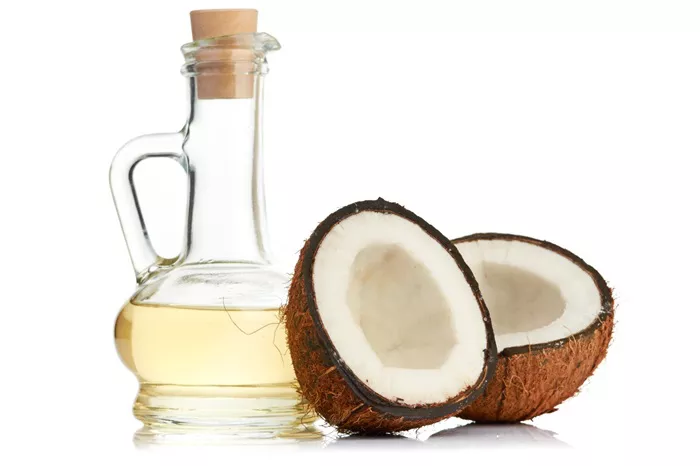Scars are a natural part of the healing process following an injury or surgery. For many, they can be unsightly and a source of emotional distress, leading to a search for effective treatments. Among various remedies, coconut oil has gained popularity for its potential benefits in scar management. This article delves into the science behind coconut oil and coconut oil’s efficacy in scar removal, examining various studies, mechanisms, and practical applications.
Understanding Scars
What are Scars?
Scars form as part of the body’s healing process after the skin is damaged. The process involves the production of collagen, a protein that helps repair and strengthen the wound. While collagen helps to heal the wound, it often results in a mark that differs from the surrounding skin in texture and color.
Types of Scars
Hypertrophic Scars: These are raised scars that remain within the boundary of the original wound.
Keloid Scars: These are raised, thick scars that extend beyond the original wound boundaries.
Atrophic Scars: These are depressed scars, often seen in conditions like acne or chickenpox.
Contracture Scars: These scars result from burns and can tighten skin, potentially affecting movement.
Factors Influencing Scar Formation
Several factors can influence how a scar forms, including genetics, the nature and location of the injury, and the individual’s age and skin type. Additionally, the treatment and care of the wound during the healing process play critical roles in scar formation.
Coconut Oil: Composition and Properties
Chemical Composition
Coconut oil is primarily composed of saturated fats, with lauric acid being the most prominent, constituting nearly 50% of the total fat content. Other fatty acids present include myristic acid, caprylic acid, and palmitic acid. Additionally, coconut oil contains vitamin E, proteins, and various minerals.
Antimicrobial Properties
Lauric acid, a medium-chain fatty acid in coconut oil, exhibits strong antimicrobial properties. This can help prevent infections in wounds, which is crucial in reducing the risk of excessive scarring.
Anti-inflammatory Effects
Coconut oil has been shown to have anti-inflammatory effects, which can help reduce redness and swelling in the affected area. This is particularly beneficial during the early stages of wound healing.
Moisturizing Abilities
Coconut oil is an effective moisturizer. Maintaining hydration in the skin can prevent dryness and cracking, which can contribute to more noticeable scarring. By keeping the skin supple, coconut oil may help improve the overall appearance of scars.
Scientific Studies on Coconut Oil for Scar Removal
In Vitro and Animal Studies
Research conducted on animals and in laboratory settings provides preliminary insights into the potential benefits of coconut oil for scar treatment.
Wound Healing in Rats: A study on rats found that coconut oil application enhanced wound healing by promoting collagen cross-linking and increasing antioxidant enzyme activity. This suggests that coconut oil could facilitate faster and more effective wound repair.
Antimicrobial Activity: Laboratory studies have demonstrated that lauric acid can inhibit the growth of various bacteria, including those commonly found in infected wounds. By preventing infections, coconut oil may reduce the risk of complications that can lead to more severe scarring.
Human Studies
Human studies are essential to validate the findings from animal research and to understand the practical implications of using coconut oil for scar management.
Burn Scars: A small clinical trial investigated the effects of coconut oil on burn scars. Participants who used coconut oil reported improved skin texture and reduced redness compared to those who did not use the oil. However, more extensive studies are needed to confirm these findings.
See Also: What Are Mild Symptoms of Schizophrenia?
Post-Surgical Scars: Anecdotal evidence and some preliminary studies suggest that coconut oil can improve the appearance of post-surgical scars by keeping the skin moisturized and promoting healing. Patients have reported smoother and less noticeable scars with regular use of coconut oil.
Mechanisms of Action
Collagen Production
Coconut oil may influence collagen production, a crucial factor in wound healing and scar formation. By promoting the synthesis and organization of collagen fibers, coconut oil can potentially lead to more structured and less visible scars.
Antioxidant Activity
Coconut oil contains antioxidants such as vitamin E, which can neutralize free radicals and reduce oxidative stress in the skin. This helps protect the skin from further damage and supports the healing process.
Skin Barrier Function
The fatty acids in coconut oil help reinforce the skin’s natural barrier, preventing moisture loss and protecting the wound from external irritants. A well-functioning skin barrier is essential for optimal healing and scar prevention.
Application Methods
Direct Application
Applying coconut oil directly to the scar or wound is the most common method. It is essential to use virgin or extra virgin coconut oil to ensure the product is free from additives and has retained its beneficial properties.
Steps for Application:
Clean the affected area with mild soap and water.
Pat the area dry with a clean towel.
Take a small amount of coconut oil and warm it between your hands.
Gently massage the oil into the scar for several minutes.
Repeat this process two to three times daily for the best results.
Combination with Other Ingredients
Coconut oil can be combined with other natural ingredients known for their skin-healing properties, such as aloe vera, honey, or essential oils like lavender or tea tree oil. These combinations can enhance the overall effectiveness of the treatment.
Safety and Side Effects
Allergic Reactions
While coconut oil is generally safe for topical use, some individuals may experience allergic reactions. It is advisable to conduct a patch test before applying coconut oil to a larger area. If any redness, itching, or swelling occurs, discontinue use immediately.
Comedogenic Potential
Coconut oil is comedogenic, meaning it can clog pores and potentially lead to acne breakouts in some individuals. Those with acne-prone skin should use it cautiously and consider non-comedogenic alternatives for scar treatment.
Interactions with Medical Treatments
For individuals undergoing medical treatments for their scars, such as laser therapy or corticosteroid injections, it is essential to consult with a healthcare provider before using coconut oil to ensure there are no adverse interactions.
Comparative Analysis with Other Scar Treatments
Silicone Gel Sheets
Silicone gel sheets are widely regarded as one of the most effective treatments for scars. They work by hydrating the scar tissue and creating a protective barrier, which can reduce redness and improve the texture of the scar. While coconut oil provides moisture and promotes healing, silicone gel sheets offer a more controlled and clinically proven method for scar management.
Onion Extract Gels
Onion extract gels, such as Mederma, are another popular treatment for scars. They contain bioflavonoids that help reduce inflammation and improve the appearance of scars. Studies comparing onion extract gels and coconut oil are limited, but both treatments offer unique benefits in scar management.
Vitamin E
Vitamin E is a well-known antioxidant often used in scar treatments. It helps in reducing the appearance of scars by promoting skin repair and preventing oxidative damage. Coconut oil, containing natural vitamin E, offers similar benefits with the added advantages of its moisturizing and antimicrobial properties.
User Experiences and Testimonials
Positive Feedback
Many individuals have reported positive outcomes when using coconut oil for scar treatment. Users commonly mention improved skin texture, reduced redness, and a more uniform appearance of their scars after consistent application.
Mixed Results
However, not all users experience the same level of improvement. Some individuals report minimal changes or no noticeable difference in their scars. This variability can be attributed to factors such as the type and age of the scar, skin type, and the frequency of application.
Conclusion
Coconut oil holds promise as a natural remedy for scar treatment due to its moisturizing, anti-inflammatory, and antimicrobial properties. While scientific evidence supporting its efficacy is still emerging, anecdotal reports and preliminary studies suggest that coconut oil can improve the appearance of scars and support the healing process.
It is essential for individuals to consider their skin type, the nature of their scars, and potential allergic reactions before using coconut oil. Consulting with a healthcare provider can also help determine the most appropriate treatment plan, especially when combining coconut oil with other medical treatments.
In summary, while coconut oil may not be a miracle cure for scars, it offers a natural, accessible, and generally safe option for those seeking to improve their skin’s appearance. As with any treatment, consistency and patience are key, and users should manage their expectations accordingly.
[inline_related_posts title=”You Might Be Interested In” title_align=”left” style=”list” number=”6″ align=”none” ids=”10287,10284,10237″ by=”categories” orderby=”rand” order=”DESC” hide_thumb=”no” thumb_right=”no” views=”no” date=”yes” grid_columns=”2″ post_type=”” tax=””]



































